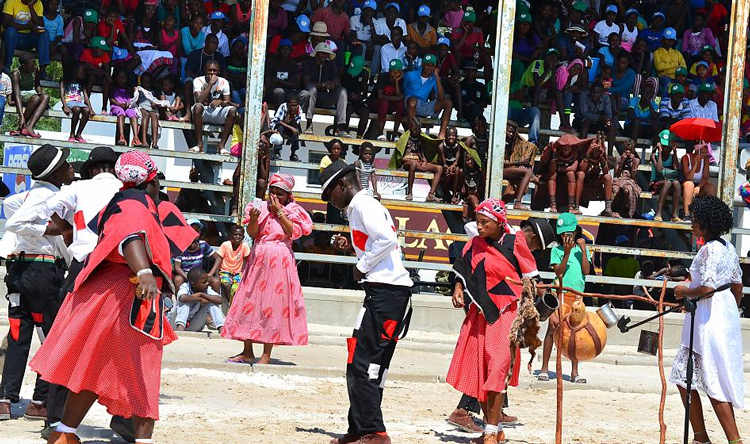Aixan gana ob ǂans tsi khasigu (ancestral musical sound knowledge and skills) was inscribed this week by UNESCO on the List of Intangible Cultural Heritage in Need of Urgent Safeguarding.
The musical knowledge and skills refers to the specific traditional music of the Nama people, one of Namibia’s tribal minority communities. It includes the use of traditional musical instruments such as the khab (musical bow) and iguitsib (traditional guitar), customarily played by men or women; and the vlies (harmonica), typically performed by women, accompanied by singing, humming and ululating.
Nama ancestral music has a particular sound, texture and rhythm, consisting of a leading melody and rhythm by either a musical bow, accordion or guitar, accompanied by a methodical harmony produced by other instruments.
Along with the skill of playing the instruments, the musicians also require the knowledge to tune, maintain and repair the instruments.
The music is accompanied by dances commonly known as ‘Nama-stap’, meaning the dancing steps of the Nama people. The music delivers entertainment during key social events but, more significantly it is also utilized to educate and instruct members of the community, for example concerning environmental awareness.

In the past, the music linked whole communities and villages, but the art presently faces many threats and in recent years only a few elders have practiced the tradition and retained the knowledge and skills.
[headline photo: Culture group dancing to the Aixan gana ob ǂans tsi khasigu – Photo by Erastus Kautondokwa, © Ministry of Education, Arts and Culture, Namibia, 2016]


